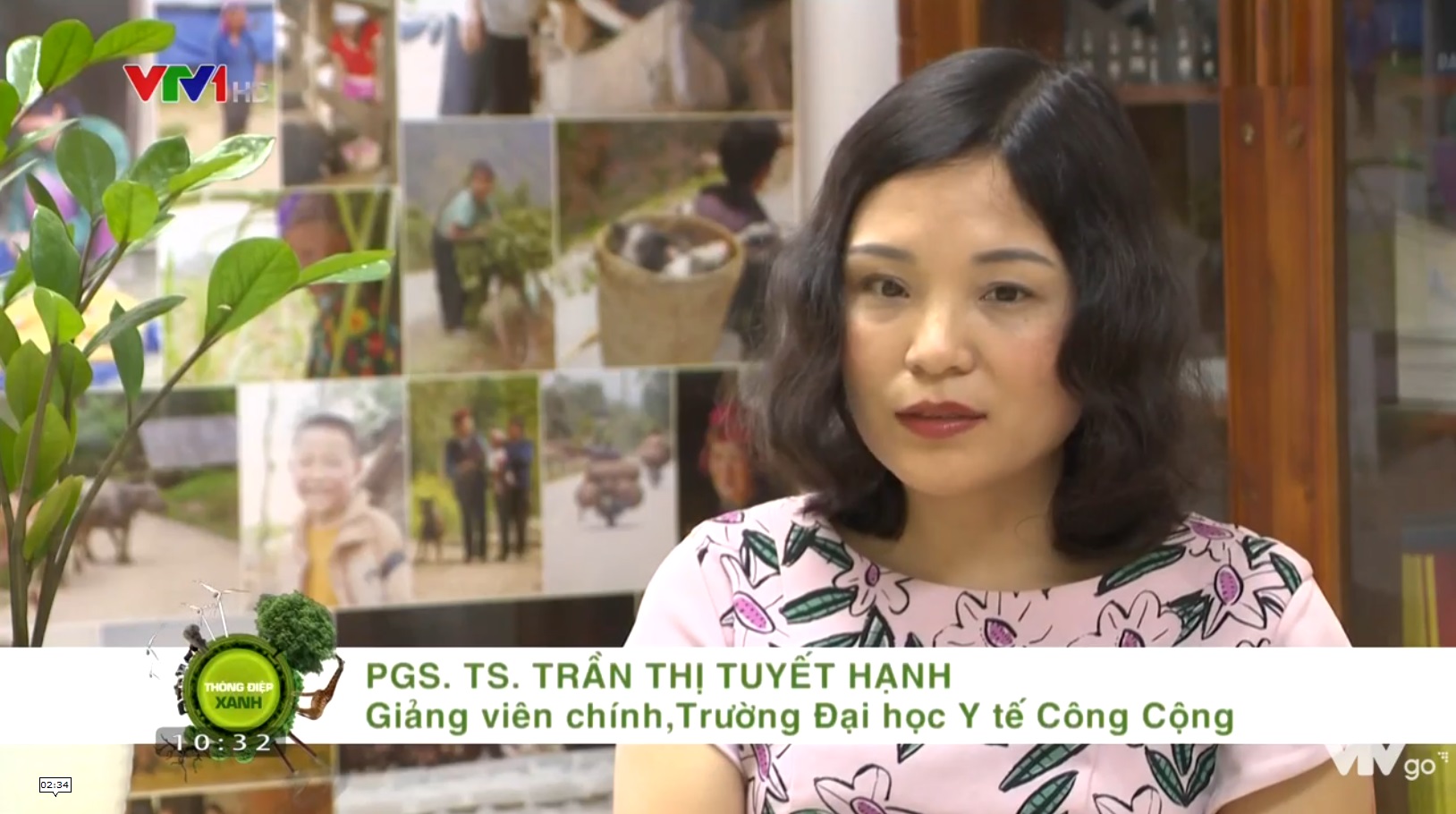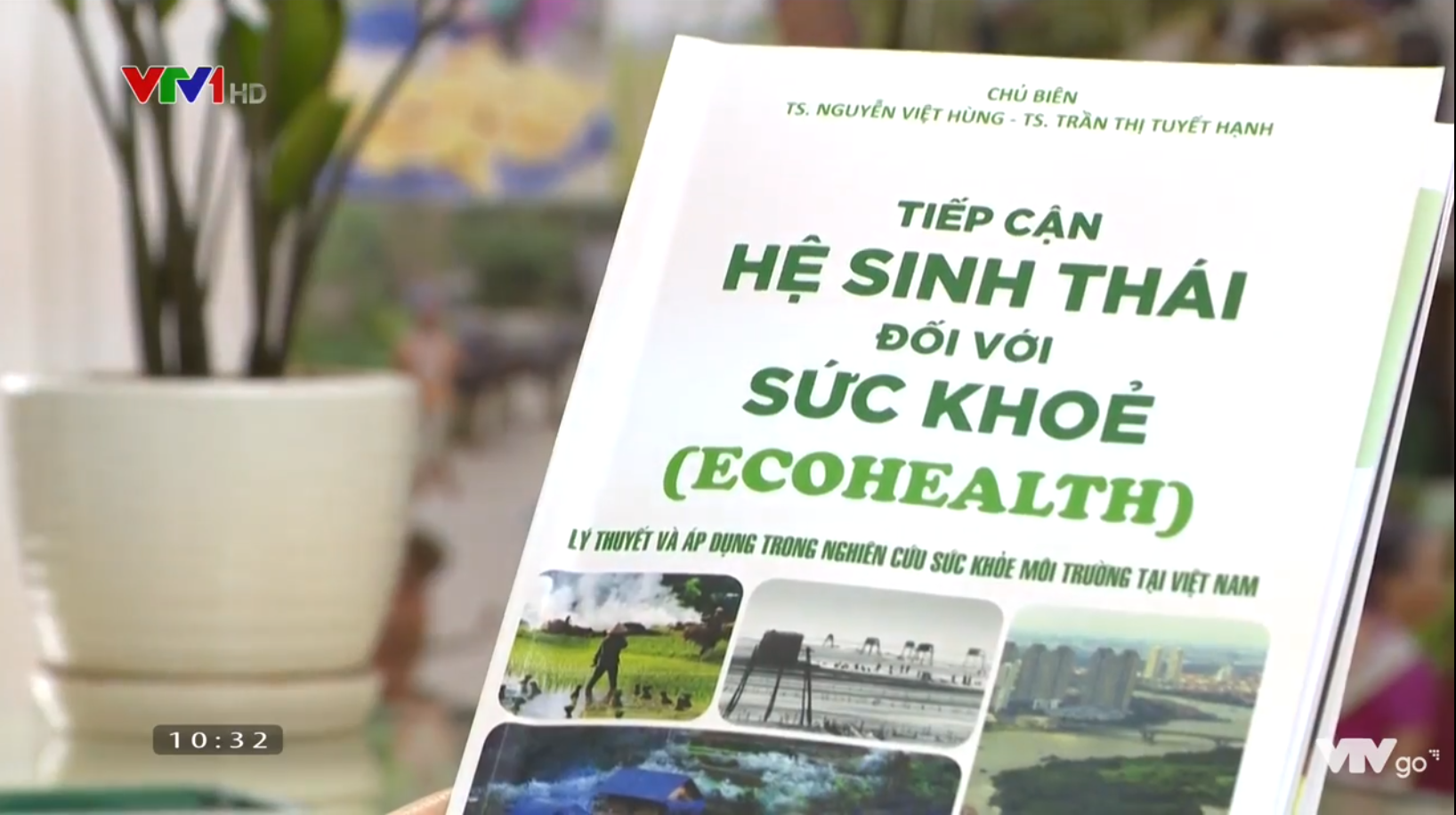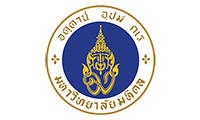VTV1, the leading Vietnamese state-run media outlet, recently interviewed Hung Nguyen, regional representative for East and Southeast Asia and senior scientist at the International Livestock Research Institute (ILRI), and Tuyet Hanh Tran, associate professor at the Hanoi University of Public Health (HUPH). The interview explored the connections between ecosystem disruptions and emerging and re-emerging infectious human diseases, especially zoonotic diseases (those shared by animals and people) in the context of the ongoing COVID-19 pandemic.
Reporter Tung Thu began the interview by observing that while COVID-19 is posing a serious threat to human health and economic development, its impact on the environment is mixed: ‘We are even seeing the crisis having some positive effects on the environment’. She asked what would happen if human beings continue to develop without taking environmental well-being and other sustainability factors into account.
HUPH’s Tuyet Hanh Tran said that some zoonotic diseases that used to be well controlled some six decades ago have re-emerged and are getting more difficult to curb in recent decades, for example, dengue fever. She explained that this can be attributed to human impacts on ecosystems, rapid urbanization, population growth, globalization, modern modes of transportation, the evolution of microorganisms, changes in lifestyles, and policy changes in vector management, among other factors.
Tran noted that animals, especially wildlife, carry pathogens that can be transmitted to humans, either through close physical contact; contact with the infected animal’s saliva, blood, urine or faeces during slaughter; or through infection when eating them.
She also indicated that urbanization, especially in poor, crowded cities, can accelerate the transmissibility of infectious diseases such as COVID-19. She explained that this is why social distancing is recommended to reduce the risk of exposure to the virus.
In terms of how to better manage zoonotic diseases, ILRI’s Hung Nguyen emphasized the need to apply a ‘One Health’ approach, which mobilizes interdisciplinary and inter-sectoral collaboration among animal, human and environmental health to work together to address disease challenges. ‘The current COVID-19 pandemic is revealing the importance of deploying a One Health approach in tackling the zoonotic diseases in a more effective and comprehensive manner,’ he commented.
In Vietnam, ILRI and its partners, including HUPH, are embracing One Health and Ecohealth approaches in addressing transboundary and inter-sectoral issues such as food safety, antimicrobial resistance and zoonotic diseases. ILRI and HUPH have been working together for the last 10 years in partnership developing One Health and EcoHealth capacity and influencing policy in Vietnam. Strengthening One Health and EcoHealth research is now the focus of the partnership, with the aim of advancing the knowledge and generating more evidence from the country for policy advocacy and interventions.
The story was broadcast on the show ‘Green Future’ of VTV1, which addresses key issues associated with the environment. See the full report (in Vietnamese).
Hung Nguyen and Tuyet Hanh Tran are co-editors of a 2016 book, Ecosystem approach to health (Ecohealth): Theory and practices in environmental health research in Vietnam, which was an outcome generated by an EcoHealth project funded by the International Development Research Centre (IDRC) and implemented by many partners in Southeast Asia.














